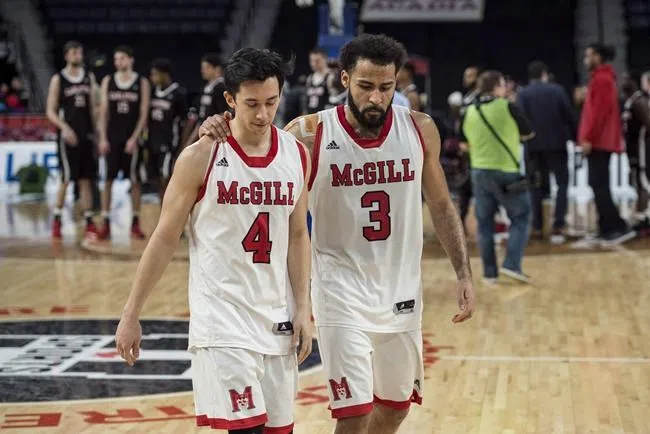
McGill to announce decision on contentious Redmen team name in January
MONTREAL — A report on renaming buildings, scholarships and other entities at McGill University to adapt to 21st century concerns has exposed the divisive nature of the debate over the name of the school’s Redmen sports teams.
A day after receiving the report, university provost Christopher Manfredi said Friday the administration will seek further input in the coming weeks before making a final decision on the Redmen next month.
The university working group on “principles of commemoration and renaming” has chronicled some of the damage caused by the name.
In its 21-page report, one unnamed Indigenous student is quoted saying that seeing Redmen jerseys in the gym “felt like a dagger” and that being called a “Redman” made him sick.
